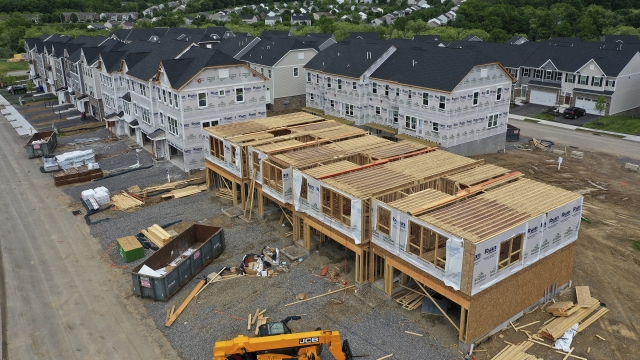It's not just Y2K fashion having a comeback — current mortgage rates are also giving us déjà vu, and that feeling may stick around longer than some of those clothing trends.
"We are in an economy that is rebalancing and so any effort to rebalance any major economy is going to come with a little bit of pain," said Gregory Daco, chief economist at EY.
March 2002 — that's when mortgage rates were 7.14%, and today rates are the highest they've been since, currently sitting at 7.09%.
Paired with a low housing supply and still high demand, it's a less than ideal environment to sell or buy.
"Mortgage rates are not gonna come back down to the record lows that we experienced two years ago. They're likely to remain fairly elevated," said Daco.
SEE MORE: Rising home prices means more home equity for homeowners
The last time we saw similar mortgage rate, inflation was at around 1.5% in 2002, compared to the current 3.2%. In March 2002 the median home price was $182,700 according to the Census Bureau — that's $310,448 in today's money. Redfin says today's median home price is $422,137.
"It's not just that the mortgage costs have gone up, but the prices of a median home have also gone up. And in totality, when you add up both of these costs, the average, potential home buyer is looking at an increase in the monthly mortgage payments of about $1,200 — so going from $1,000 back in 2019 to about $2,200 in 2023," Daco said.
So when will this blast from the past end? Daco says mortgages won't be budging for a while.
"I don't think we're going to see a major downslide from where we are right now. Instead, I think we're gonna see a gradual upside, but it will take time. It's not gonna be an immediate effect that we see, and it'll likely linger into 2024," he said.
Trending stories at Scrippsnews.com





